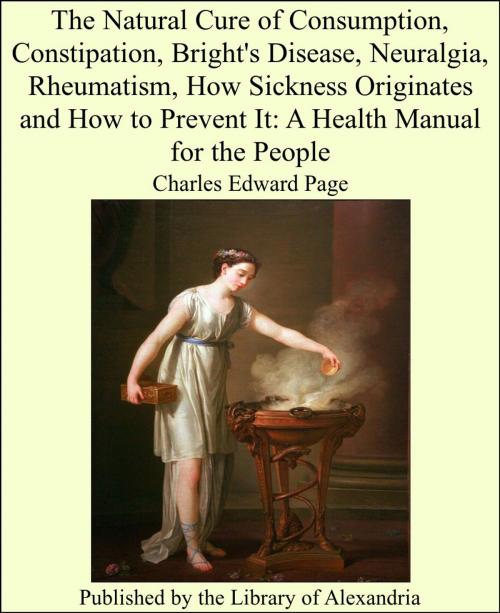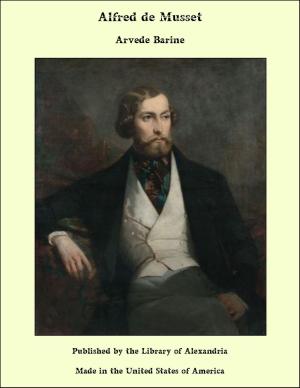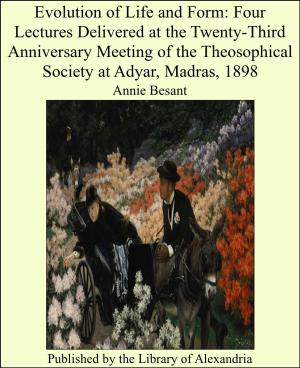The Natural Cure of Consumption, Constipation, Bright's Disease, Neuralgia, Rheumatism, How Sickness Originates and How to Prevent It: A Health Manual for the People
Nonfiction, Religion & Spirituality, New Age, History, Fiction & Literature| Author: | Charles Edward Page | ISBN: | 9781465534514 |
| Publisher: | Library of Alexandria | Publication: | March 8, 2015 |
| Imprint: | Language: | English |
| Author: | Charles Edward Page |
| ISBN: | 9781465534514 |
| Publisher: | Library of Alexandria |
| Publication: | March 8, 2015 |
| Imprint: | |
| Language: | English |
Although it is evident to my mind that the world is growing more healthy and more moral with every generation—speaking of civilized nations—it is still, as all agree, in a most pitiful state as regards both moral and physical health. The two are indissolubly associated, notwithstanding the glaring exceptions which are, indeed, more apparent than real, and it is difficult to appreciate which leads—whether man grows more healthy as his moral tone improves or more moral as his physical state is exalted. Both are, in fact, constantly acting and reacting upon each Other. Few people withdraw themselves from the influence of disease-producing habits, who do not first come to hate disease as a symptom of disobedience to the laws governing their organism. The pain of an aching head is not sufficient, generally, although it may discount the tortures of the damned, to determine the sufferer to live a better life; but when he comes to know the fact that the disorder is needless, brought upon himself by violation of law, and that it is the normal office of pain to warn of danger; then, if he be conscientious, instead of cursing his suffering, he will feel ashamed of his sin, and endeavor to learn the laws of life and obey them. “In days gone by and not far away, there was a very general impression with the people that sickness and the death which so often follows it were of divine origination and ordainment. No person who might be sick blamed himself for it; certainly no one was held by the community of which he was a member, as in any sense responsible or blameworthy because of his death by sickness. It was believed that for reasons thoroughly justifiable, but incomprehensible to the mind of man, the Supreme Ruler saw fit to manifest His modes and methods of government, either providential or punitive, by taking away the health or the life of those who became sick, or who being sick died of their sickness. “This notion, though not so prevalent as formerly, still lingers in the popular mind and lies hidden away in the select circles of religious people, occasionally to be brought forth and urged upon public consideration with emphasis, when some person is taken sick and remains for many months and perhaps years an invalid, or when one taken sick suddenly dies. “There is no basis in science nor in religion for this impression. It never rose, it never can rise, to the dignity or worthiness of an idea; it must always dwell, no matter who entertains it, on the low level of irrational impression. Its basis is error, not knowledge; its superstructure is superstition. By and by, when mankind shall reach such a degree of rational development as to understand that human life has its laws, and that human health is but the legitimate outcome of the operation of these laws, and that every human being of every tribe and kindred and tongue, is born to live on earth under such minute and careful providential arrangements as to hold within him, at his starting, great securities and guarantees of the very highest order, for the continuance of his life up to a definite period, and that by reason of this inherent capability, he is entitled to live to the full measure of his endowment, this foolish, I may say wicked, notion, that God kills people will disappear. When it shall be abandoned, the sickness which now is so common everywhere, and the deaths which now so frequently result, will cease, and human beings will live from birth to death by old age, casualties, and accidents one side, as surely as the seasons come and go.”[1
Although it is evident to my mind that the world is growing more healthy and more moral with every generation—speaking of civilized nations—it is still, as all agree, in a most pitiful state as regards both moral and physical health. The two are indissolubly associated, notwithstanding the glaring exceptions which are, indeed, more apparent than real, and it is difficult to appreciate which leads—whether man grows more healthy as his moral tone improves or more moral as his physical state is exalted. Both are, in fact, constantly acting and reacting upon each Other. Few people withdraw themselves from the influence of disease-producing habits, who do not first come to hate disease as a symptom of disobedience to the laws governing their organism. The pain of an aching head is not sufficient, generally, although it may discount the tortures of the damned, to determine the sufferer to live a better life; but when he comes to know the fact that the disorder is needless, brought upon himself by violation of law, and that it is the normal office of pain to warn of danger; then, if he be conscientious, instead of cursing his suffering, he will feel ashamed of his sin, and endeavor to learn the laws of life and obey them. “In days gone by and not far away, there was a very general impression with the people that sickness and the death which so often follows it were of divine origination and ordainment. No person who might be sick blamed himself for it; certainly no one was held by the community of which he was a member, as in any sense responsible or blameworthy because of his death by sickness. It was believed that for reasons thoroughly justifiable, but incomprehensible to the mind of man, the Supreme Ruler saw fit to manifest His modes and methods of government, either providential or punitive, by taking away the health or the life of those who became sick, or who being sick died of their sickness. “This notion, though not so prevalent as formerly, still lingers in the popular mind and lies hidden away in the select circles of religious people, occasionally to be brought forth and urged upon public consideration with emphasis, when some person is taken sick and remains for many months and perhaps years an invalid, or when one taken sick suddenly dies. “There is no basis in science nor in religion for this impression. It never rose, it never can rise, to the dignity or worthiness of an idea; it must always dwell, no matter who entertains it, on the low level of irrational impression. Its basis is error, not knowledge; its superstructure is superstition. By and by, when mankind shall reach such a degree of rational development as to understand that human life has its laws, and that human health is but the legitimate outcome of the operation of these laws, and that every human being of every tribe and kindred and tongue, is born to live on earth under such minute and careful providential arrangements as to hold within him, at his starting, great securities and guarantees of the very highest order, for the continuance of his life up to a definite period, and that by reason of this inherent capability, he is entitled to live to the full measure of his endowment, this foolish, I may say wicked, notion, that God kills people will disappear. When it shall be abandoned, the sickness which now is so common everywhere, and the deaths which now so frequently result, will cease, and human beings will live from birth to death by old age, casualties, and accidents one side, as surely as the seasons come and go.”[1















